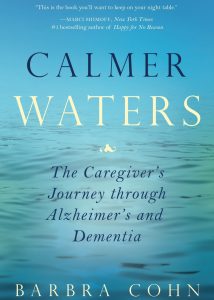
May is Osteoporosis Awareness Month, and just when we thought we didn’t need one more thing to worry about, The Endocrine Society has published a new study linking prolonged sleep disturbance with bone loss in men.
The study researchers found that healthy men had reduced levels of a marker of bone formation in their blood after just three weeks of restricted sleep and circadian disruption similar to that seen in jet lag or night shift work. A biological marker of bone resorption, or breakdown, was unchanged.
“This altered bone balance creates a potential bone loss window that could lead to osteoporosis and bone fractures,” said lead investigator Christine Swanson, M.D., an assistant professor at the University of Colorado in Aurora, Colorado.
“If chronic sleep disturbance is identified as a new risk factor for osteoporosis, it could help explain why there is no clear cause for osteoporosis in the approximately 50 percent of the estimated 54 million Americans with low bone mass or osteoporosis,” Swanson said.
Inadequate sleep is also prevalent, affecting more than 25 percent of the U.S. population occasionally and 10 percent frequently, the Centers for Disease Control and Prevention report.
The 10 men in this study were part of a larger study that some of Swanson’s co-authors conducted in 2012 at Brigham and Women’s Hospital in Boston, Mass. That study evaluated health consequences of sleep restriction combined with circadian disruption. Swanson defined circadian disruption as “a mismatch between your internal body clock and the environment caused by living on a shorter or longer day than 24 hours.”
Study subjects stayed in a lab, where for three weeks they went to sleep each day four hours later than the prior day, resulting in a 28-hour “day.” Swanson likened this change to “flying four time zones west every day for three weeks.” The men were allowed to sleep only 5.6 hours per 24-hour period, since short sleep is also common for night and shift workers. While awake, the men ate the same amounts of calories and nutrients throughout the study. Blood samples were obtained at baseline and again after the three weeks of sleep manipulation for measurement of bone biomarkers. Six of the men were ages 20 to 27, and the other four were ages 55 to 65. Limited funding prevented the examination of serum from the women in this study initially, but the group plans to investigate sex differences in the sleep-bone relationship in subsequent studies.
After three weeks, all men had significantly reduced levels of a bone formation marker called P1NP compared with baseline, the researchers reported. This decline was greater for the younger men than the older men: a 27 percent versus 18 percent decrease. She added that levels of the bone resorption marker CTX remained unchanged, an indication that old bone could break down without new bone being formed.
“These data suggest that sleep disruption may be most detrimental to bone metabolism earlier in life, when bone growth and accrual are crucial for long-term skeletal health,” she said. “Further studies are needed to confirm these findings and to explore if there are differences in women.”
What to do about it?
The first line of defense is to improve sleep hygiene. Find more ways to get a good night’s sleep in my book “Calmer Waters: The Caregiver’s Journey Through Alzheimer’s & Dementia,” (Blue River Press) available wherever books are sold.
- Exercise early, not in the last two hours before going to bed. Regular exercise has been shown to help people fall asleep faster and benefit from deeper and more restful sleep.
- Alleviate the stress and fatigue of the day with safe, proven herbs such as passion flower, magnolia, and valerian, and amino acids taurine, theanine and GABA, and melatonin which have been scientifically shown to produce a gentle calming effect on the whole physiology.
- Get thyself outside! Researchers found that bright light in the early morning and avoidance of light in the evening promotes a healthy circadian rhythm, whereas bright light in the evening disrupts the sleep cycle. And make sure you sleep with the lights off in you room.
- People with stressful lives often take their stress into bed with them and are unable to turn off the mental chatter. Eat dinner earlier, and don’t watch an exciting or scary movie before bed (that goes for reading matter as well), and certainly do not smoke, or drink alcohol or caffeine in the evening.
- Go to bed earlier. Research shows that the hours of sleep before 2 a.m. are more rejuvenating than all the hours after.
- Take a warm bath with soothing lavender oil to help you unwind.
- Establish a regular bedtime, but don’t go to bed if you feel wide awake.
- Once in bed, use creative imagery and relaxation techniques to pacify your mind.
- Avoid staying in bed for long periods of time while awake, or going to bed because of boredom.
- Take your TV or computer out of your bedroom. If not, your brain becomes used to the stimulation and starts to expect it when you are there. This makes it harder for you to fall asleep.
- A snack before bedtime helps many people. Foods such as warm milk, turkey, tuna, nuts, banana, grapefruit, dates and figs are high in the amino acid L-tryptophan, which promotes the production of serotonin, a natural relaxant. Avoid eating heavy meals at least two hours prior to going to sleep.
- Sex can be a natural sleep inducer for some people.
- Avoid emotional upset or stressful situations prior to bedtime.
- Relax with an inspirational book, soft music, and a cup of herbal tea.
- Talk with your health care provider if you’ve tried the above and are still having difficulty falling asleep, awaken several times throughout the night, have early morning awakenings or have marked difficulty getting out to bed in the morning.
- Good night, sleep tight.
